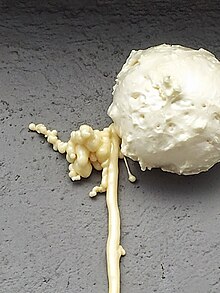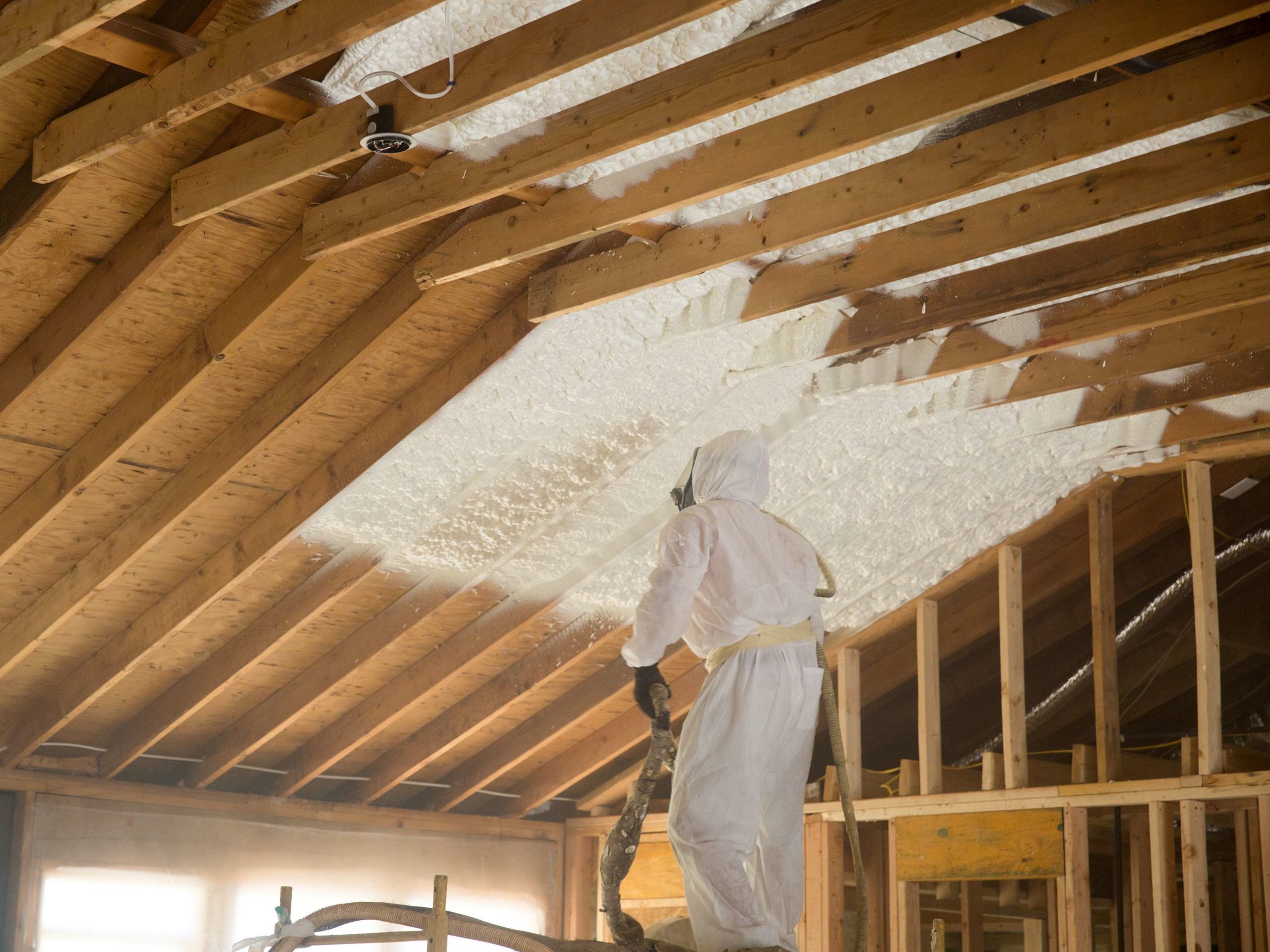Comparing Spray Foam to Typical Insulation: Which Is Better?
Comparing Spray Foam to Typical Insulation: Which Is Better?
Blog Article
Top Factors to Pick Spray Foam for Your Next Insulation Project
When considering insulation choices for your following project, spray foam sticks out as a result of its remarkable performance features and effectiveness advantages. Its exceptional R-value not just boosts thermal resistance yet likewise adds to substantial power savings over time. Moreover, the product's ability to produce an impermeable seal effectively minimizes air seepage and lessens the threat of moisture-related concerns, such as mold development. As you consider your options, checking out the flexible applications and lasting benefits of spray foam may expose compelling factors to incorporate it into your insulation approach.
Superior Insulation Efficiency

The high R-value of spray foam, which determines its thermal resistance, is an additional vital benefit. Closed-cell spray foam, for instance, can accomplish an R-value of as much as 6.5 per inch, dramatically outshining fiberglass batts and cellulose. In addition, spray foam insulation produces an impermeable seal, which lessens thermal connecting and decreases the possibility for mold development due to moisture build-up.

Energy Efficiency Perks
The power performance benefits of spray foam insulation are substantial, more enhancing its allure as a top selection for developing insulation. Spray foam increases upon application, creating an airtight seal that decreases air leakages, which is a common source of energy loss in standard insulation products.
Additionally, spray foam insulation boasts a high R-value per inch, which indicates it uses more thermal resistance in much less room compared to options like fiberglass or cellulose (Spray Foam). This efficiency not just adds to instant power cost savings but also advertises long-lasting sustainability by minimizing the general energy consumption of a structure
Moreover, the application of spray foam can qualify home owners for energy performance incentives and tax credit histories, including financial benefits to its energy-saving capabilities. In an age where energy conservation is critical, picking spray foam insulation not just boosts comfort yet also aligns with eco liable practices, making it a sensible option for both household and industrial projects.
Moisture and Mold Resistance
Offered its one-of-a-kind structure and application approach, spray foam insulation provides remarkable moisture and mold resistance, making it a perfect selection for numerous settings. The closed-cell framework of spray foam develops a solid barrier that successfully seals off possible moisture access, thus reducing the probability of mold development. Unlike typical insulation products, which can absorb water and give a breeding place for mold, spray foam stays impervious to wetness, enhancing the general health of the interior setting.
In addition, the application procedure of spray foam involves increasing and filling up voids and splits, ensuring a limited seal that lessens air leaks. This characteristic not just improves energy effectiveness however additionally helps control moisture levels within the room. Correct humidity control is essential for protecting against mold and mildew and mildew, making spray foam insulation specifically advantageous in locations vulnerable to dampness, such as cellars and crawl rooms.
Along with its moisture-resistant homes, spray foam is likewise naturally resistant to mold growth. This characteristic makes sure that homes and structures continue to be healthy and balanced and safe gradually, supplying assurance to property owners and building managers alike.
Long-Term Expense Cost Savings
Purchasing spray foam insulation yields substantial long-term price savings, mostly via enhanced power effectiveness. Unlike typical insulation materials, spray foam produces a closed seal that decreases air leakage. This reduction in drafts results in decrease heating & cooling expenses, as a/c systems do not have to work as hard to keep comfortable interior temperatures.
In addition, the premium insulating residential or commercial properties of spray foam mean that homes stay constantly comfortable year-round, lowering reliance on energy-consuming devices. In time, these savings can accumulate, causing a recognizable reduction in energy expenses.
Additionally, spray foam insulation adds to the long life of your home's framework by preventing wetness accumulation and mold growth, which can result in expensive repairs. With its durability and resistance to working out, spray foam preserves its performance over the years, guaranteeing that the first financial investment continues to settle.
Fundamentally, selecting spray foam insulation not only enhances your home's energy performance yet additionally translates into significant long-lasting economic advantages, making it a sensible financial investment for house owners aiming to reduce prices while boosting comfort and sustainability.
Versatile Application Alternatives
Countless application alternatives make spray foam insulation a very functional selection for a selection of structure jobs (Spray Foam). This adaptability allows it to be successfully utilized in domestic, industrial, and industrial settings, catering to diverse insulation needs
Spray foam can be used in attics, wall surfaces, creep rooms, and even roofing systems, giving smooth coverage that eliminates spaces this contact form and gaps where air leakages generally happen. Its ability to increase upon application makes sure a tight seal, which is essential for energy effectiveness and dampness control.
Additionally, spray foam insulation is available in various formulations, consisting of open-cell and closed-cell types, enabling for tailored options based upon certain project needs. Open-cell foam is lighter and much better matched for soundproofing, while closed-cell foam offers remarkable insulation and structural integrity, making it ideal for areas revealed to moisture.
Additionally, spray foam can be used in hard-to-reach spaces, enhancing its viability for retrofitting existing frameworks. With the ability to stick to various substratums, consisting of metal, wood, weblink and concrete, spray foam insulation attracts attention as a functional choice that meets the needs of contemporary structure practices.
Final Thought
Finally, spray foam insulation emerges as a remarkable choice for insulation tasks because of its extraordinary thermal resistance, power performance, and capacity to develop impermeable seals that prevent moisture and mold growth. The long-lasting expense savings related to reduced energy expenses additionally boost its allure. In addition, its flexibility in application across different setups underscores its functionality and performance. Choosing spray foam insulation ensures a detailed service that satisfies the demands of modern-day building and construction and energy effectiveness standards.
When it comes to accomplishing ideal power efficiency in household and business structures, spray foam insulation stands out for its exceptional insulation performance.The energy effectiveness benefits of spray foam insulation are substantial, further improving its appeal as a top choice for building insulation.Investing in spray foam insulation returns considerable long-term price savings, primarily via boosted power effectiveness.In final look at here now thought, spray foam insulation arises as a superior option for insulation tasks due to its extraordinary thermal resistance, energy efficiency, and ability to create impermeable seals that avoid moisture and mold and mildew growth. Choosing spray foam insulation makes certain a detailed solution that fulfills the demands of contemporary building and energy effectiveness requirements.
Report this page